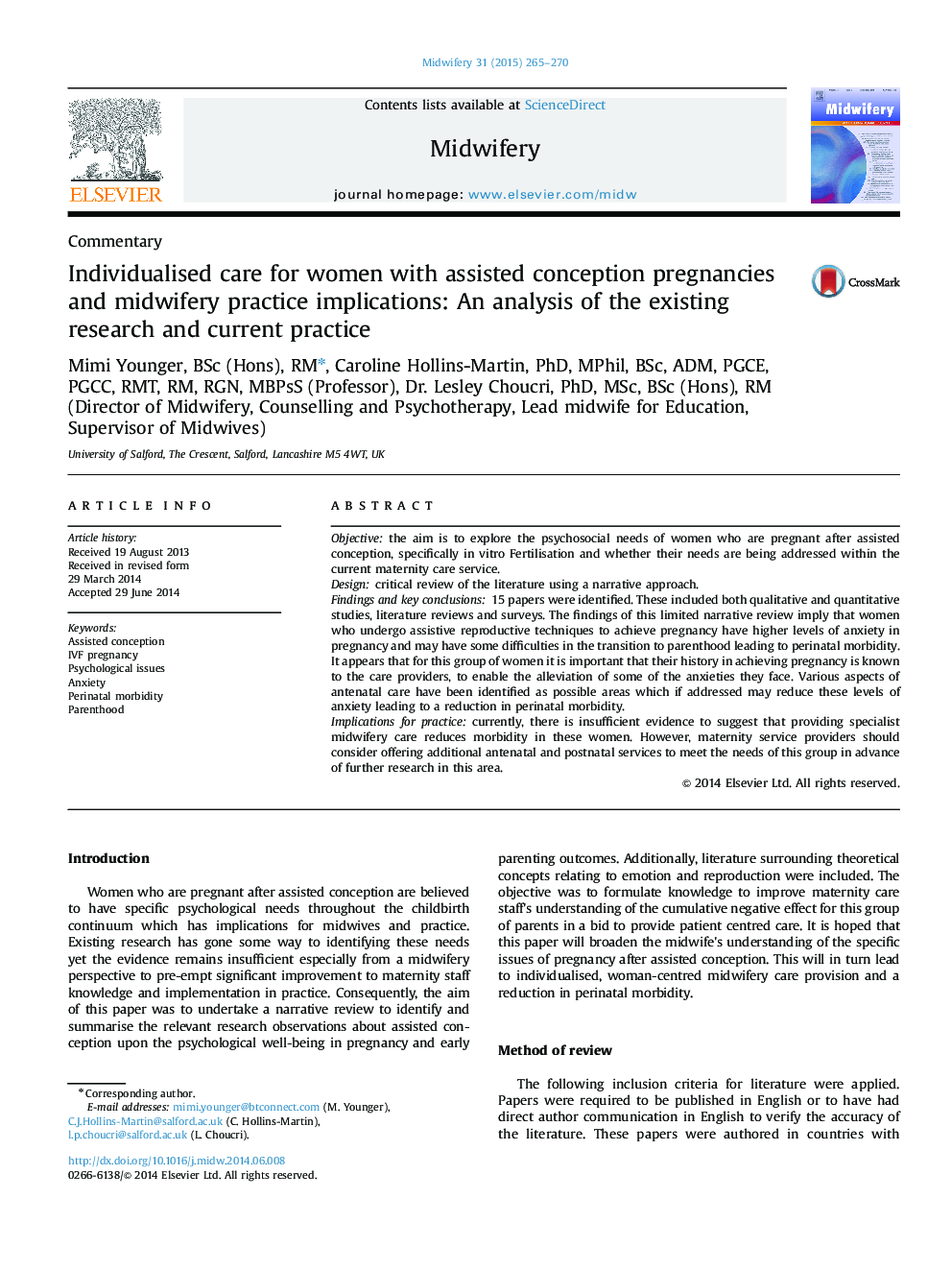| Article ID | Journal | Published Year | Pages | File Type |
|---|---|---|---|---|
| 1084499 | Midwifery | 2015 | 6 Pages |
Objectivethe aim is to explore the psychosocial needs of women who are pregnant after assisted conception, specifically in vitro Fertilisation and whether their needs are being addressed within the current maternity care service.Designcritical review of the literature using a narrative approach.Findings and key conclusions15 papers were identified. These included both qualitative and quantitative studies, literature reviews and surveys. The findings of this limited narrative review imply that women who undergo assistive reproductive techniques to achieve pregnancy have higher levels of anxiety in pregnancy and may have some difficulties in the transition to parenthood leading to perinatal morbidity. It appears that for this group of women it is important that their history in achieving pregnancy is known to the care providers, to enable the alleviation of some of the anxieties they face. Various aspects of antenatal care have been identified as possible areas which if addressed may reduce these levels of anxiety leading to a reduction in perinatal morbidity.Implications for practicecurrently, there is insufficient evidence to suggest that providing specialist midwifery care reduces morbidity in these women. However, maternity service providers should consider offering additional antenatal and postnatal services to meet the needs of this group in advance of further research in this area.
